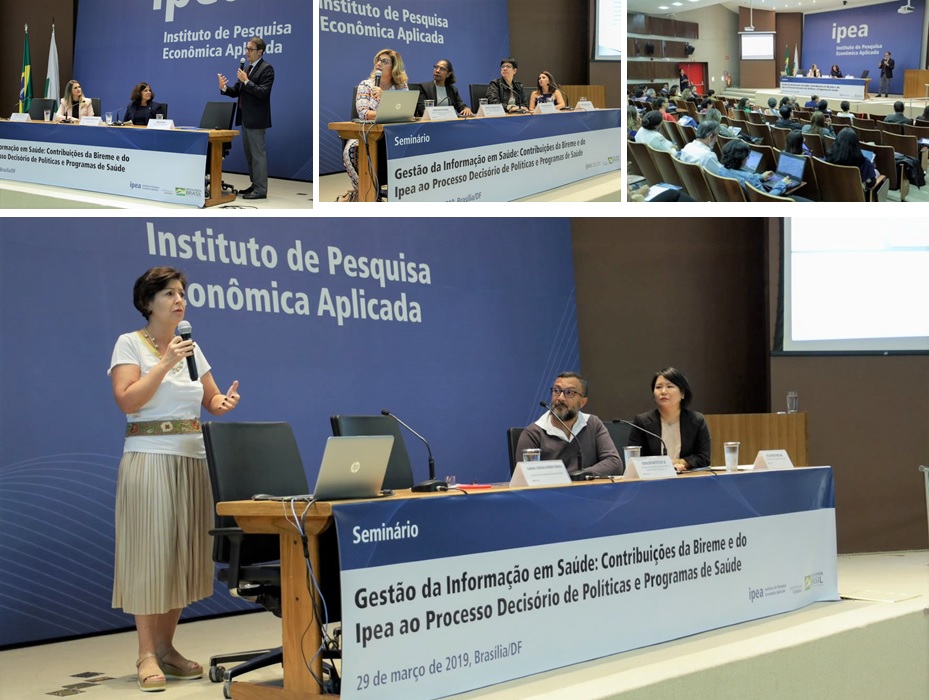It is known that the health area is interdisciplinary and that many sectors produce and use scientific knowledge related to health in their decisions, plans and research. But from that to imagining that products, services and systems of information management in the field of health are interoperable, communicate and complement each other, is something that still requires a lot of work.
This situation is reflected on the dispersion of information on different websites, portals and information platforms, the duplicity of efforts for information records and, in many cases, a lesser visibility of the information and, for users, a greater difficulty in finding relevant information for health decision.
With this in mind, Public Policy and Governmental Management experts from IPEA sought BIREME and requested the inclusion of the Institute’s considerable scientific and technical output related to health into the LILACS database. This could be simple if the indexing system used by IPEA were interoperable with the FI-Admin system used for recording documents in the Latin American Literature on Health Sciences (LILACS) database and other Virtual Health Library (VHL) databases. Unfortunately, this was not the case. The alternative option would have been to register IPEA output into LILACS as new entries on the FI-Admin, without considering the already existing records on the IPEA system. This option would also have to be updated regularly, according to future publications from the Institute, and proved to be unfeasible.
Thus, technical teams began considering the pros and cons of each option and analyzing technical and operational feasibility. A decision was made to work on interoperability between the SophiA system, which uses the MARC format, and the FI-Admin system, which uses the LILACS Methodology, with data collection through OAI-PMH service. This took a few months of work, including content analysis, ways of structuring data fields, compatibility of data fields, adaptation of the SophiA system, standardization of registered content, collection tests and data treatment.
 In parallel, the General Coordination of Documentation and Information (CGDI) and the Department of Health Economy, Investment and Development (DESID), both part of the Brazil’s Ministry of Health, were consulted on the indexation of five IPEA journals on the Coleciona-SUS database and on the incorporation of records from IPEA publications on the ECOS (Health Economics) database, both of which were accepted immediately.
In parallel, the General Coordination of Documentation and Information (CGDI) and the Department of Health Economy, Investment and Development (DESID), both part of the Brazil’s Ministry of Health, were consulted on the indexation of five IPEA journals on the Coleciona-SUS database and on the incorporation of records from IPEA publications on the ECOS (Health Economics) database, both of which were accepted immediately.
Motivated by the importance of this work, IPEA organized and promoted the Seminar “Gestão da Informação em Saúde: as Contribuições da BIREME e do IPEA ao Processo Decisório de Políticas e Programas de Saúde”, broadening the discussion on the relevance of the use of technical and scientific evidence for decision making in health, beyond the experience of BIREME and IPEA with the indexation project for IPEA’s health output in the LILACS database. The Seminar took place in Brasilia, on March 29, 2019, at the Divonzir Gusso Auditorium.
Details on the interoperability between IPEA and LILACS systems
After the stage of tests for collection and compatibility of data from publication records in the field of health by IPEA on LILACS, the following results were observed:
- Identification of 565 IPEA health publications on the institution’s database;
- Upload and publication of 300 publication records from the field of health economy on the LILACS, Coleciona-SUS and ECOS databases;
- Analysis of the publications by IPEA and publication of the following Institutional Report: Health Information Management, produced and/or published by IPEA, authorship of Fabíola Supino Vieira and Jhonathan Divino Ferreira dos Santos.
Coming up:
- Finalization and preparation of IPEA records for contribution with LILACS, Coleciona-SUS and ECOS;
- Continuation of the established registration process;
- Writing and submission of an article about the experience to be submitted to a scientific journal; and
- Infometric Analysis of the IPEA contribution to the Virtual Health Library (VHL).